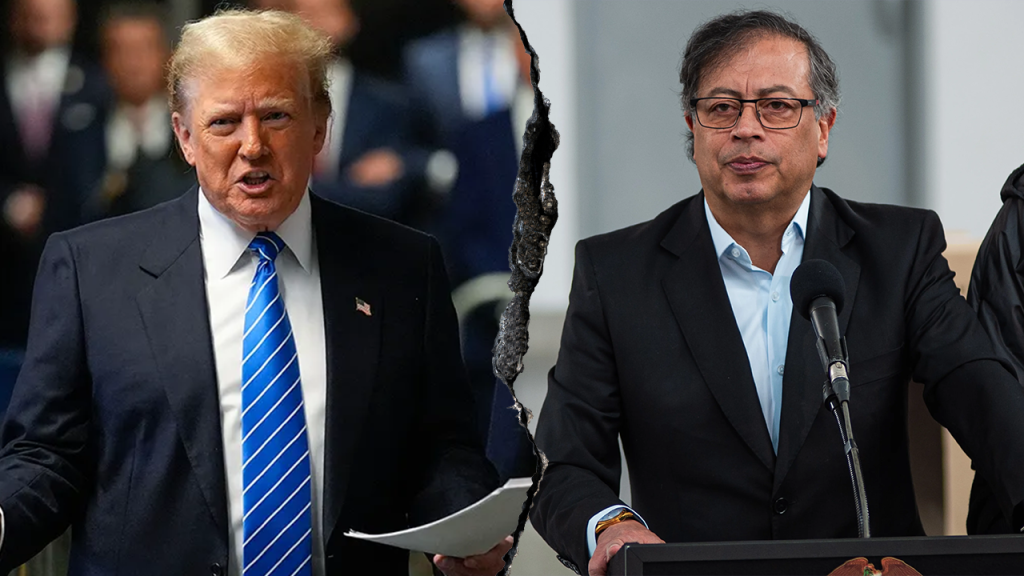The diplomatic standoff between the United States and Colombia over the deportation of Colombian nationals residing illegally in the U.S. took a dramatic turn with Colombian President Gustavo Petro’s unexpected call for their return. Initially refusing to accept deportation flights, Petro argued that Colombian migrants should not be treated as criminals. This stance led to escalating tensions, culminating in the U.S. suspending visa issuance, imposing travel sanctions on Colombian officials, and threatening a 25% tariff on Colombian goods. Petro countered with a similar tariff threat, demanding that deported migrants be treated with dignity and respect, rejecting the use of shackles and military aircraft for their transport.
However, the situation quickly evolved. The White House announced that Petro had conceded to all of President Trump’s demands, including the unrestricted acceptance of deportees, even on U.S. military planes. This marked a significant shift in Petro’s position, prompting the resumption of visa processing in Bogotá and signaling a de-escalation of the diplomatic conflict. The rapid turnaround suggests the substantial pressure exerted by the U.S. economic sanctions and travel restrictions proved effective in swaying Petro’s decision.
Following his acquiescence to U.S. demands, Petro launched a campaign urging undocumented Colombians in the U.S. to return home. He coupled this call with a promise of economic support, pledging to provide productive loans to returnees who enroll in government programs. This initiative, framed as an effort to build social wealth within Colombia, aims to incentivize voluntary repatriation. It represents a multifaceted strategy, addressing both the immediate diplomatic crisis and potentially contributing to long-term economic development within Colombia.
Petro’s initial defiance and subsequent about-face reflect the delicate balance he must strike between domestic political considerations and international relations. His initial stance resonated with a segment of the Colombian population sympathetic to the plight of migrants. However, the potential economic fallout from U.S. sanctions likely compelled him to prioritize maintaining a functional relationship with a key economic partner. The offer of loans to returning migrants could be interpreted as an attempt to mitigate potential domestic criticism stemming from his perceived capitulation to U.S. pressure.
This incident underscores the complex dynamics of migration and international relations, particularly in the context of differing economic and political realities. While the U.S. focused on enforcing its immigration laws and border security, Colombia grappled with the potential social and economic repercussions of absorbing a large influx of returning citizens. The episode also highlights the significant leverage wielded by the U.S. in its dealings with smaller nations, especially regarding economic policy.
The swift resolution, driven by economic considerations, illustrates the often-pragmatic nature of international diplomacy. While both sides initially adopted strong positions, the potential for mutual economic harm ultimately compelled a compromise. Petro’s call for repatriation, coupled with the promise of economic assistance, represents an attempt to transform a diplomatic crisis into an opportunity to boost domestic economic development by leveraging the skills and potential of returning Colombians. It remains to be seen how effective this initiative will be in enticing undocumented Colombians to leave the U.S. and whether the promised loans will indeed contribute to sustainable economic growth within Colombia.

